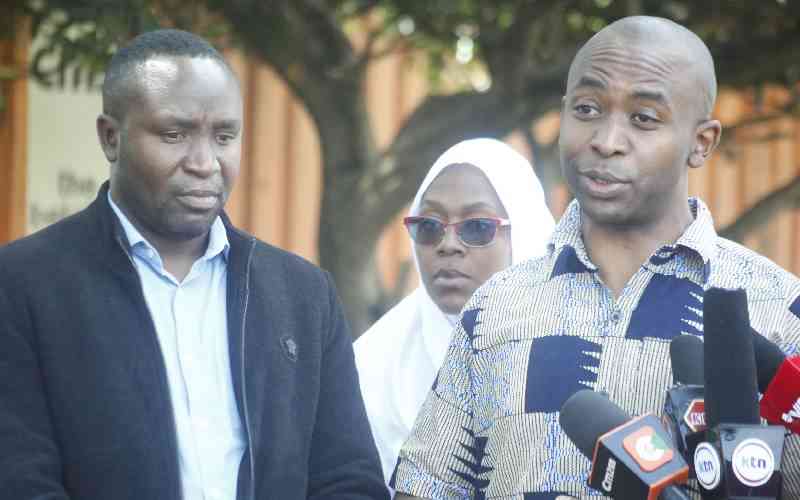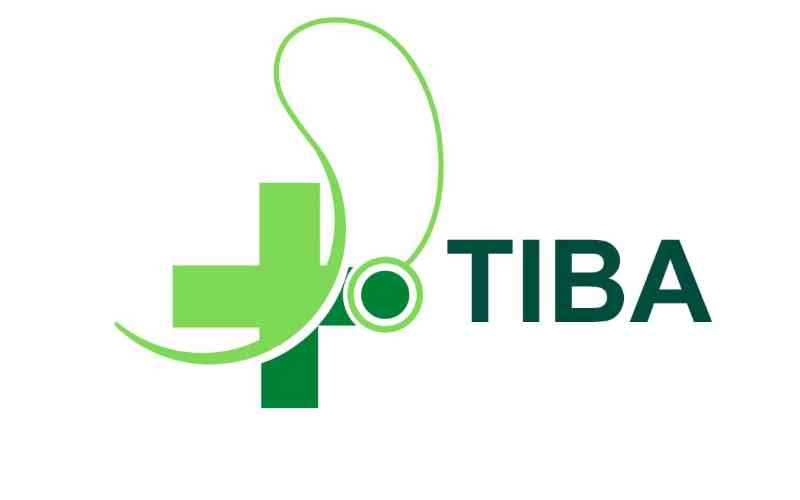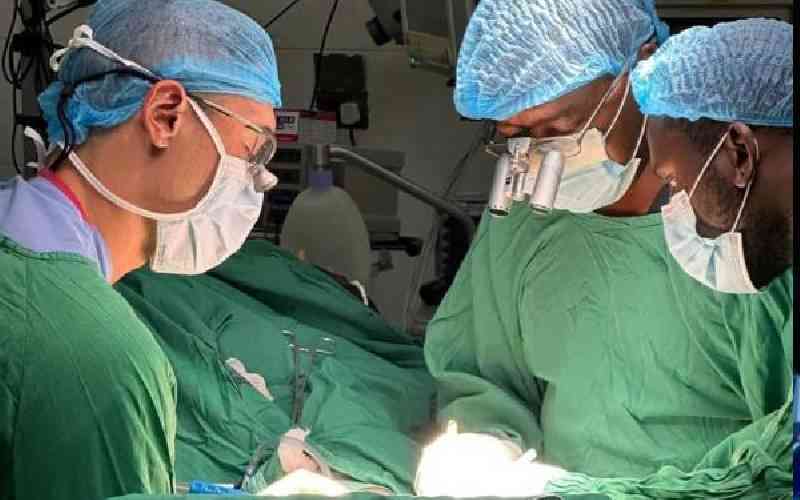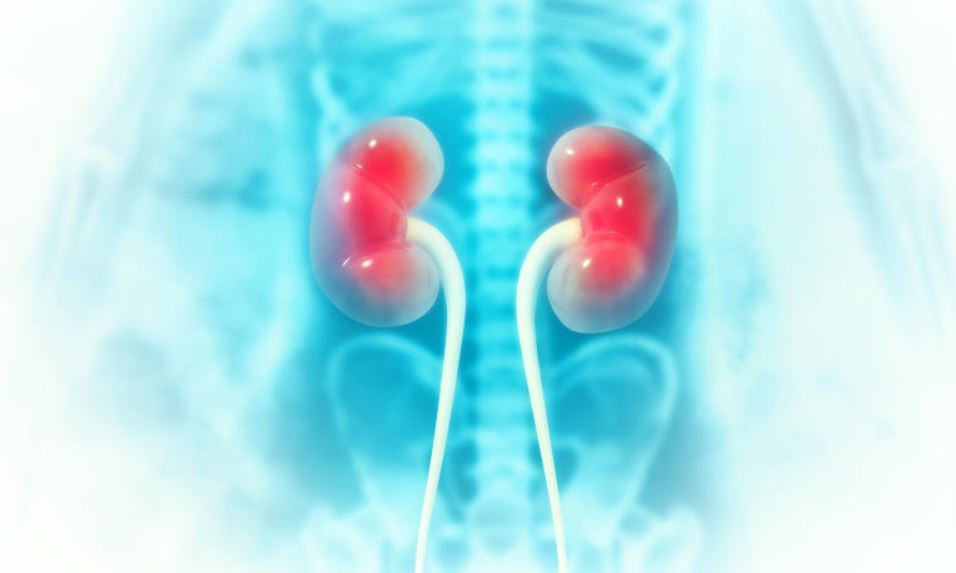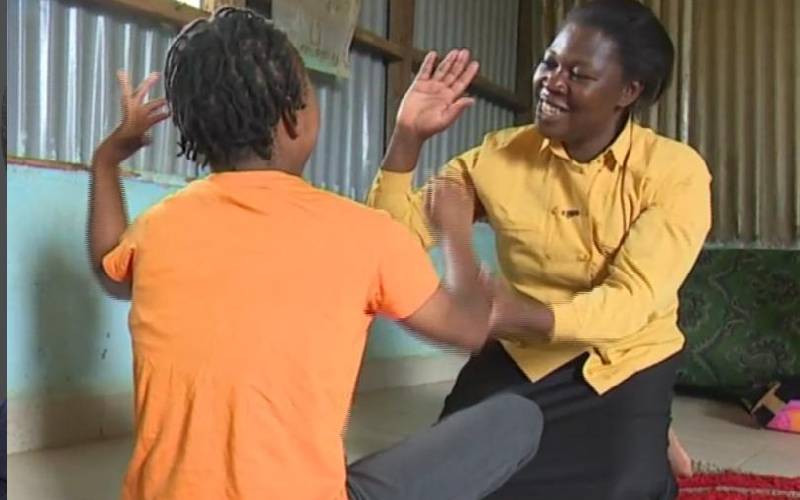
When Monicah Njeri gave birth to her fourth child eight years ago in Kakuma, Turkana, she had a feeling that something wasn't right.
"I went into labour when I was 7 months pregnant," Monicah narrates. "What shocked me is that my baby did not cry immediately after birth which, as far as I knew, is critical in opening up the lungs and enabling a baby to breathe normally."
The baby, who Monicah named Angel, weighed 1.2kgs, much lower than her other children had weighed at birth. She was worried.
"I asked the midwife why my newborn had low birth weight and why she hadn't yet cried. She told me that it was normal for some newborns," Monicah says. By the time they were discharged from the hospital, the baby had started crying but wouldn't stop.
In search of what was ailing her daughter, Monicah visited one health facility after another. She was told different things -- from tuberculosis to heart disease. Finally, Monicah decided to visit a health facility in Nairobi.
"I narrated to the paediatricians everything that had happened since I gave birth. Various tests were carried out and finally, Angel was found to have cerebral palsy (CP)," Monicah says.
According to Dr Katherine Oyieke, Paediatric Neurologist, cerebral palsy is a group of disorders that affects a person's ability to move, maintain posture and coordination. The symptoms often appear in infancy and early childhood. It arises as a result of abnormal brain development or interference/damage to the immature brain that may occur before delivery in the majority of cases, during delivery, and after birth.
"The factors that can cause CP during delivery and in the first few weeks after the child is born include prolonged labour, cord entanglement, inappropriate birth position, difficult delivery, trauma during delivery, too low or too high birth weight and jaundice in the newborn. All these factors cause deprivation of the necessary nutrients (oxygen and glucose) to the brain during the vulnerable period surrounding birth and can result in cerebral palsy," she adds.
She says that the features of cerebral palsy include delay in motor developmental milestones, abnormalities of muscle tone, reduction in normal movement and coordination and the presence of abnormal movements.
"As a result, an infant or young child may exhibit weak cry at birth, poor head control, floppiness of the neck and back, stiffness of arms and legs, arching of the back, weakness of one side of the body, persistent clenching of fists in infancy, rigid posture of the legs with a tendency to keep legs in a position that mimics the appearance of scissors, seizures, impairments in speech or vision, excessive drooling and problems with swallowing," Dr Oyieke says.
There are certain early signs that clinicians observe when a baby is born to determine how the baby tolerated the birthing process. "Newborns often will cry spontaneously or with some stimulation. The absence of crying at birth like baby Angel may serve as a sign that the newborn was already compromised prior to delivery as a result of maternal or prenatal risk factors or that the newborn has not tolerated the birthing process due to perinatal risk factors," Dr Oyieke says.
According to Dr Dorcas Tunje, Consultant Pediatrician and Neurologist in Machakos County, some of the causes of cerebral palsy are preventable.
"Preventive options include good antenatal care during pregnancy. This reduces the risk of premature delivery and identifies a mother who is at risk of complications. It is also crucial to treat maternal infections promptly and correctly and ensure safe delivery of a baby (in a health facility with qualified staff) and prompt resuscitation of a baby who is at risk of complications and oxygen administered appropriately," Dr Tunje says.
According to Christine Arunga Mutola, CEO, and founder of Barrack Museka Cerebral-Palsy Foundation, parents of children with cerebral palsy often face stigma due to various myths surrounding the disorder.
"From 'it is witchcraft' and 'it's a disease' to 'you are a sinner and the gods are punishing you' and 'it's a bad omen'. Cerebral palsy is just a condition, it's not contagious or infectious hence there is no room for stigmatisation. These are our own children and if society does not love and embrace them, who will?" she says.
"Do not hide them in the house, join support groups, identify areas in which your child is good and empower them. Have close face-to-face contact with your child to promote communication. Through this, they can know when they are in distress," Ms Mutola says.
"Regular therapy sessions are very important in the life of a child with CP, next to food for a child with CP is therapy. They relax muscle tones and assist the child in achieving milestones. In Kenya, therapy is expensive and most families cannot afford it. Lack of therapy hinders (drags) milestones achieved," she says.
Monicah says that while she was advised by doctors to take her child for therapy sessions but she has not been able to keep up with the costs.
"I stopped going to work because I'm the one who nurses Angel. I was advised to feed my baby using gastronomy feeding tubes which are quite intimidating for other caregivers. Raising a baby with CP is no walk in the park. We have to make numerous costly hospital visits as a result of one complication or the other," she says. "I call upon the government together with concerned stakeholders to support parents and caregivers who are nursing CP patients."
 The Standard Group Plc is a multi-media organization with investments in media
platforms spanning newspaper print
operations, television, radio broadcasting, digital and online services. The
Standard Group is recognized as a
leading multi-media house in Kenya with a key influence in matters of national
and international interest.
The Standard Group Plc is a multi-media organization with investments in media
platforms spanning newspaper print
operations, television, radio broadcasting, digital and online services. The
Standard Group is recognized as a
leading multi-media house in Kenya with a key influence in matters of national
and international interest.



